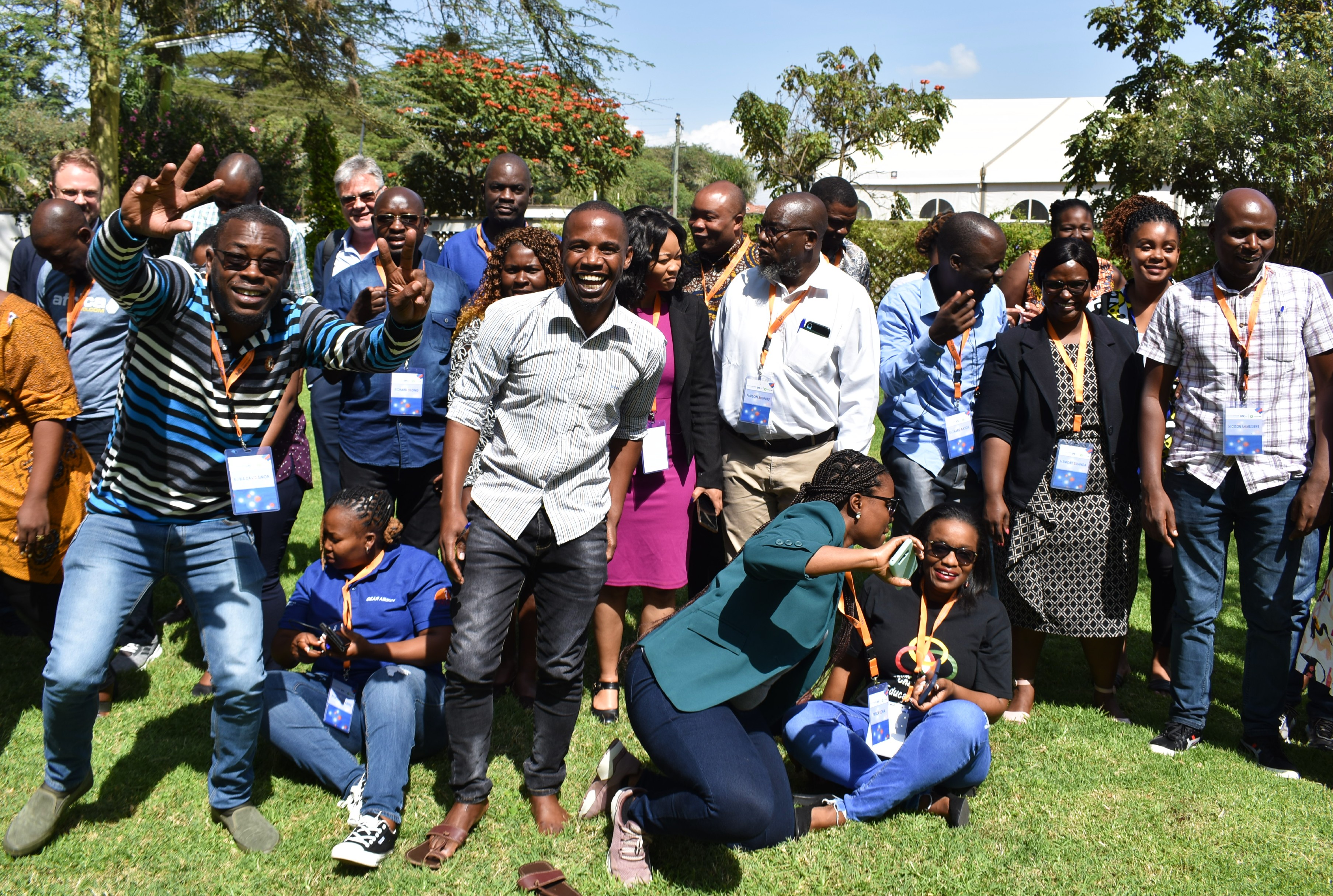
Photo: Beatrice Akello
Little did I imagine… Learning event for the HESA region
The special event held in Nairobi, Kenya started on May 9, and inspired such a tremendous conversation on education that continued until the event ended four days later. The participants came from countries targeted by OC3 projects including Malawi, Zambia, Zimbabwe, DRC, Liberia, Mozambique, Lesotho, Uganda, Kenya, and Tanzania. They came into the event hoping to learn from each other and create strong networks and synergies to strengthen their quest for quality education for all.
Want to appreciate more from this learning event? Please click here to access the various presentations and materials.
The HESA Regional Management Unit of Education Out Loud organized this event to ensure that the concept of synergy is understood, discussed, and taken forward by the participants in countries with more than one grantee.
“This is for purposes of ensuring that grantees within one country can effectively understand what their counterparts are doing so as to identify areas of synergies for maximum impact,” explained Richard Olong, the Regional Programme Manager of Education Out Loud in HESA.
Learning the backbone of EOL
Education Out Loud has a deliberate intention to cultivate a culture of learning among the Civil Society Organizations working in education and revitalize research and evidence-based advocacy in the sector. The meeting was therefore designed to unpack the Education Out Loud learning approach and strategies but also recognize the progress made so far and identify potential for increased synergies between the partners.
“It was a very rewarding learning experience, the meeting has opened my eyes to many possibilities for national, regional and global advocacy to promote girls’ education,” said one of the participants, Aisha Bruce, Executive Director of HOPE Liberia.
Aisha Bruce felt that the meeting provided an opportunity to clearly understand the bigger picture and see how all the pieces (OC1, OC2, OC3) fit together.
“When I return, I’m excited to discuss with my team on how we can actively participate in the learning collaborative and sharing ideas on regional and global opportunities, advocacy and networking,” Aisha Bruce added.
George Hamusunga from Zambia National Education Coalition (ZANEC) found it particularly useful that the meeting offered an effective platform for knowledge sharing and learning from the other practitioners in education advocacy and social accountability.
“Little did I imagine I was going to learn so much from my peers. Since such events bring together people who are highly experienced in implementing similar projects like we are implementing, there are no theories involved. The knowledge you get depicts innovative good practices that have been tested and worked in their context. Therefore, the relevance of the lessons you get makes it easy to learn and adapt to your context.”
Results driven approaches
During the four days there were also sessions on Adaptive Management as an approach that enables teams to adapt strategies, activities, and theories of change to changes in the operating environment to achieve the program overarching goals. The key takeaway was that grantees should ensure there is good analysis and documentation of the contextual changes, communication and seeking of approval on the processes or activities that need to shift/change; and not just making unilateral changes without observing due processes in the names of adaptive management.
Another popular session was unfolding the learning agenda and introducing the learning collaboratives – a platform for exchange of knowledge and expertise across EOL partners. To make this effective, a steering committee was selected to lead the learning collaborative in executing the functions and activities.
”The event was necessary, appreciated, successful and achieved the objectives,” said Richard Olong, the Regional Programme Manager, RMU-HESA.
“Face to face engagements are very important for learning as it allows participants to connect with each other and appreciate what others are doing, and leaves time to really discuss the strategies employed and synergy creation. Learning is not always through training, lecturing and capacity building but more valuable learning can be achieved through listening to the experiences of those who have done some work and either succeeded or failed,” he added.
Want to appreciate more from this learning event, please click here to see the various presentations and materials.
